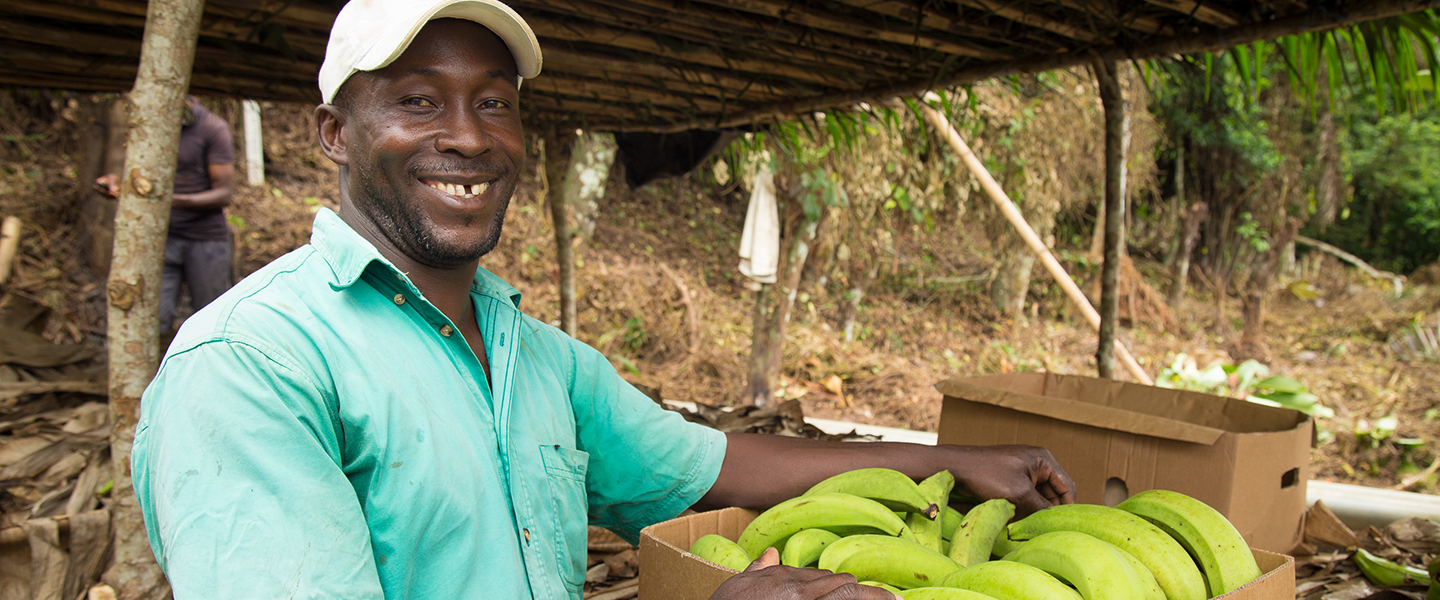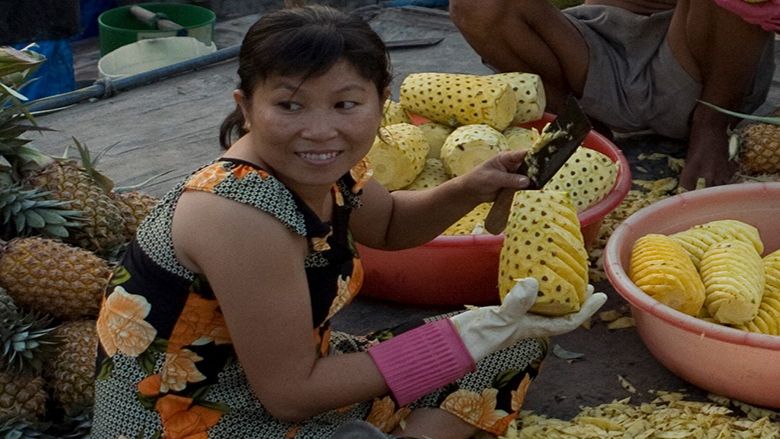Overview
Markets in emerging economies are growing rapidly and creating vast opportunities as incomes rise and diets change.
The challenge is to better integrate small scale farmers into markets so that they can make the agricultural sector stronger. Experience shows that when a country’s agricultural sector is not competitive, there is greater reliance on imports and less agriculture-driven poverty reduction in rural areas.
Agribusiness small and medium-sized enterprises (SMEs) are critical to link smallholder producers to national markets, meet food demand and create tomorrow’s jobs.
Africa’s food market, valued at about US$313 billion a year in 2013, could triple by 2030, with investments in infrastructure, smart business and trade policies and a dynamic agribusiness sector linking farmers with consumers in growing urban areas, according to a World Bank report on the potential of agribusiness in Africa.
Strategy
The World Bank Group works to improve infrastructure and bolster support services, to strengthen food value chains, and increase market access for smallholder farmers.
The Bank works with countries to build solid road networks and expand access to reliable electricity, water supply and information and communication technology. It also supports infrastructure that improves product delivery while minimizing loss, such as storage facilities, dedicated agriculture port terminals, and facilities for processing agriculture products. The right infrastructure can reduce transaction costs for farmers, help subsistence farmers scale up to commercial agriculture, improve processing of agriculture products, and reduce post-harvest losses.
Smallholders can improve their livelihoods by reaching consumers beyond their local markets. Through producer organizations, the Bank helps farmers scale up their operations and lower costs by providing access to information and communications technology, business development services, education and other opportunities to increase their revenues.
The Bank uses analytical work to advise client countries on improving the policy and legal environment for smallholder farmers, traders and others involved in agribusiness. Using data and analysis collected since 2013, Enabling the Business of Agriculture periodically looks at how laws, regulations, policies and infrastructure affect the ability of farmers to produce, sell and buy their products, and deliver affordable nutritious food to a growing population.
International Finance Corporation, which is an arm of the World Bank Group that focuses exclusively on the private sector in developing countries, finances agribusinesses and food-related companies. It also supports financial institutions that enable the private sector to provide additional resources and financing to agribusiness. This is coupled with advisory services that help clients improve their operations with a focus on productivity improvements, climate smart practices, food safety, and engagement with smallholder supply chains.
The World Bank and IFC work in partnership to mobilize finance for development in agricultural value chains. The so-called “MFD approach” seeks to crowd-in private investments and optimize the use of scarce public resources to achieve sustainable development goals, for example by improving the policy and regulatory environment, reducing transaction costs and risks, scaling up finance and promoting good governance and environmental and social sustainability. In Cote d’Ivoire, for example, the World Bank is providing $200 million to support cashew sector policy reform and improve smallholder farmers and processors’ access to markets, technology and training, while IFC works with local banks to catalyze credit across the cashew value chain.
Results
The World Bank’s 15-year experience with productive alliances in Latin America (21 projects, 10 countries, US$ 1 billion funding since 2000) shows it’s possible to increase productivity, market integration, and income of smallholder farmers by forging stronger links between producers, buyers and the public sector. The average increase in net income in Colombia and Bolivia was about 30 percent and most productive alliances continued to operate long after project completion.
In Madagascar, a World Bank-funded project is helping cocoa farmers increase the value of their exports by moving from standard-quality cocoa to superior-quality cocoa. In addition to commanding higher prices, superior-quality cocoa results in fewer post-harvest losses.
In Cameroon, a partnership between sorghum producers, agribusiness purchasers and financial institutions has improved the livelihoods of smallholders in a region plagued by insecurity and prone to climatic hazards.
Removing existing companies’ powers to veto the licensing of new tea factories in Kenya enabled the entry of new competitors, facilitation investment in the sector and allowing farmers to receive 70 percent higher prices for their crop.
World Bank Group projects supporting government reforms in Cote d’Ivoire, Ethiopia, Ghana, Kenya, Malawi and Senegal to introduce Warehouse Receipt Systems have helped improve the integration of producers, traders, and processors into value chains by improving their access to professional storage and credit.
The Bank helped poor and vulnerable farmers in the state of Assam, India, significantly increase their productivity by investing in better and more extensive rural roads, upgrades to food markets, and farmer groups. Over 290 dairy cooperatives and 3,200 fish farmer groups were created. Paddy rice yields more than doubled and farmers diversified to higher value crops. Of the project’s 566,000 direct beneficiaries, 17 percent were landless, 47 percent were marginal farmers, and 31 percent were small farmers. A recently approved project in Assam will help facilitate agri-business investments, increase agriculture productivity and market access, and enable small farm holders to produce crops that are resilient to floods and droughts.
In Vietnam, the Bank’s support for the 2008 to 2014 Agriculture Competitiveness Project trained more than 93,400 farmers in modern farming techniques, fostered the establishment of farmers’ organizations linked to agri-businesses, and provided critical public infrastructure. As a result, producers saw the value of their sales increase by almost 20 percent.


